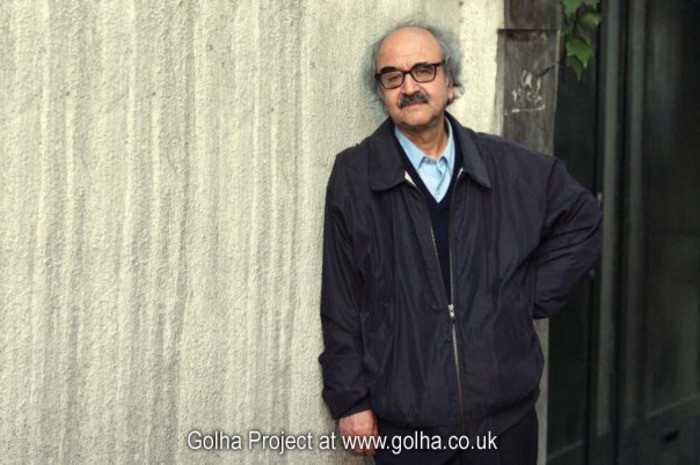Shafi‘i Kadkani

Biography
Shafi’i Kadikani, Muhammad Riza (b. 1939), son of Mirza Muhammad. Born in Kadikan, an ancient village in the vicinity of the ancient city of Nayshabur, he composes poetry with nom de plume M.Sirishk. Having studied the preliminary courses in religious sciences, e.g. Jami’ al-Muqaddamat and Akhund Khurasani’s Kifaya, with his father, Mirza Muhammad Shafi’i Kadikani, he furthered his studies at the Hawza-yi ‘Ilmiyya (Islamic Seminary) of Khurasan under distinguished masters of Khurasan, e.g. Hajj Shaykh Hashim Qazwini and Adib Nayshaburi. Having spent 15 years of his childhood and early youth studying traditional sciences at the Hawzas of Khurasan, he received his modern education and obtained an admission from the University of Mashhad, where he studied with eminent professors, e.g. Dr. Fayyaz, Dr. Yusufi, and Dr. Raja’i. Shafi’i and some young poets founded a literary society after 1953, the majority of whose members, including Dr. ‘Ali Shari’ati, supported modern poetry, fiction, and translations from European literature. Shafi’i later went to the University of Tehran where he studied with Badi’ al-Zaman Furuzanfar and Parviz Natil Khanlari and obtained his MA in Persian Literature and doctorate degrees in Arabic and Persian literature. Then, he found an employment as associate professor at the Department of Persian Literature and Comparative Literature, University of Tehran. He also worked at Iran Cultural Foundation (Bunyad-i Farhang-i Iran) and the Library of the Senate (Kitabkhanih-yi Majlis-i Sina) and later became a professor at the Faculty of Letters, University of Tehran. He also taught at Oxford University, England, and Princeton, the United States, on his sabbaticals. His publications include tens of articles and books. M.Sirishk embarked on his poetical career by composing ghazal. He clearly revealed his vigor in poetical compositions in ghazal and other forms in his Zimzimih-ha (1965) and other collections of poetry. Although Zimzimih-ha has been composed in the Indian Style, but the poet’s attachment to Khurasani poets is reflected in it. He began his poetical compositions in his early youth and chose the nom de plume M.Sirishk. His acquaintance with Nima Yushij led him to abandon traditional styles and forms and compose in the modern style on the model of Nima. He nearly abandoned lyrical poetry and turned towards epic and social poetry. Such development is clearly reflected in his collections Shabkhani and Zaban-i Barg.
His earliest collections of poetry, Shabkhani and Zimzimih-ha appeared in 1965 and Zaban-i Barg appeared in 1968 in Mashhad. He owes his fame to his most popular collection, Dar Kucheh-Bagh-ha-yi Niyshabur (1971). Other collections appeared in the 1970s, but they stood second to Dar Kucheh-Bagh-ha-yi Niyshabur in terms of poetical and artistic style. After the Revolution, he has conducted literary studies and textual criticism in the main, though has been publishing his poetry as well. Hizarih-yi Duvvum-i Ahu-yi Kuhi, one of the most elegant poems by M.Sirishk, and is regarded as one of the most memorable pieces of Modern Persian poetry. His collection, Dar Kucheh-Bagh-ha-yi Niyshabur (1971) reflected that he had a particular diction, structure, and form and his poetry was proceeding on its path of development. His last collection, Hizarih-yi Duvvum-i Ahu-yi Kuhi (1988), particularly the poems composed from the 1980s, indicate that he attained a novel diction; the structure and forms of his poetry have grown more vigorous and more musical, his diction more sophisticated, and his ideas more philosophical, hence the particular attention accorded to the collection by the elite. His poetry is marked by some features: the poet’s attachment to Persian and Islamic literary traditions and such refinement is most exquisitely reflected in his poetry; he depicts the nature and natural environment of the Khurasan Province in his poetry and familiarizes his audience with intermingling his historical memories and the unfriendly natural conditions of the land. His poetry is mainly social in nature, reflecting the situation of the Iranian society in the 1960s and 1970s through imagery, symbols, and allusions. Relying on the rich heritage of Persian and Arabic literature and familiarity with Dari, the ancient language of Khurasan, Shafi’i is a distinguished modernist poet who, besides his anthropological and social perspectives, elegantly presents the phenomena of his wondrous and poetical world. He is also a distinguished figure in Persian literature by his compilations, editions, translations, critiques, and academic studies. His Suwar-i Khiyal dar Shi’ir-i Farsi; Musiqi-yi Shi’r; Asrar al-Tawhid; and many other books and articles are regarded today as frequently consulted sources. He is one of the most distinguished professors of modern Persian literature and one of the eminent researchers and authorities in Persian literature and poetry criticism. A poet of renown and vigor, he has his particular style by which he is recognized as an avant-garde poet. One of his character traits is that he rarely attends literary circles and mainly leads the secluded life of literary figures. His works include: Zimzimih-ha; Shabkhani; Az Zaban-i Barg; Dar Kucheh-Bagh-ha-yi Niyshabur; Az Budan u Surudan; Misl-i Darakht dar Shab-i Baran; Bu-yi Ju-yi Muliyan; Suwar-i Khiyal dar Shi’ir-i Farsi; Musiqi-yi Shi’r; Adwar-i Shi’ir-i Farsi; Shi’r-i Mu’asir-i ‘Arab; Guzidih-yi Ghazaliyyat-i Shams; Hazin-i Lahiji, Zindigi va Zibatarin Ghazal-ha-yi U; Sha’ir-i A’inih-ha; Bidil va Sabk-i Hindi; Asrar al-Tawhid by Muhammad ibn Munawwar; Halat va Sukhanan-i Abu Sa’id; Abu Ruh-i Mayhani; Mukhtarnamih; Majmu’ih-yi Ruba’iyyat-i ‘Attar; Marmuzat-i Asadi, in: Marmuzat-i Dawudi by Najm al-Din Razi; Tarjimih-yi Tasawwuf-i Islami va Rabitih-yi Insan u Khuda, by Nicholson.
Az Zaban-i Subh: dar Bara-yi Zindigi va Shi’ir-i Shafi’i-yi Kadkani (85-120).